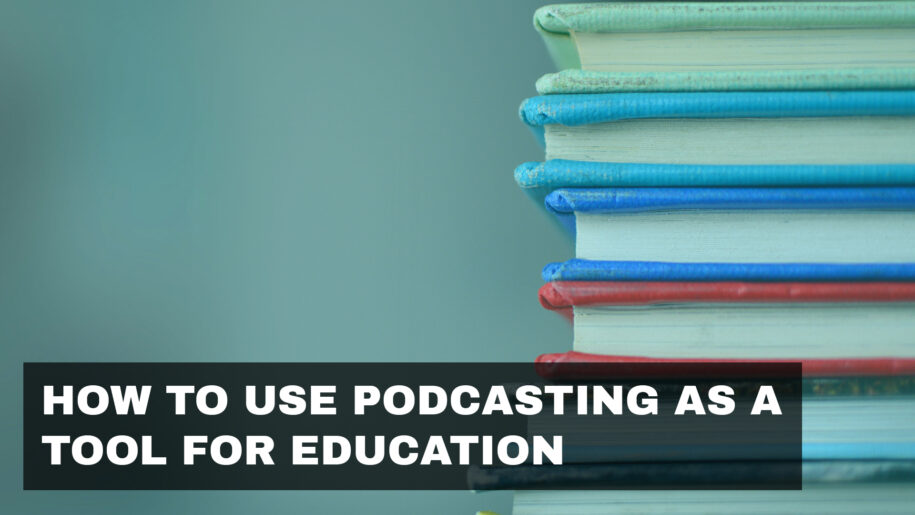Podcasting has emerged as a powerful tool for education, offering a dynamic and engaging way to disseminate knowledge. It provides an accessible platform for educators and learners alike to explore various topics and enhance the learning experience. In this blog post, we’ll explore how to effectively use podcasting as an educational tool and the benefits it offers.
1. Create Engaging Educational Content
Content is the cornerstone of educational podcasts. Ensure your episodes are well-researched, informative, and engaging. Use storytelling techniques to make complex topics more relatable and understandable.
Example: “Incorporate real-life examples and case studies to illustrate theoretical concepts. This approach helps learners connect with the material on a deeper level.”
2. Incorporate Diverse Formats
Varying your podcast format can keep your content fresh and cater to different learning preferences. Consider a mix of interviews, solo episodes, panel discussions, and Q&A sessions.
Example: “Invite experts to discuss their field of expertise in an interview format. Follow this with a solo episode where you delve deeper into specific topics covered in the interview.”
3. Leverage Multimedia Resources
Enhance your educational podcast with supplementary materials such as transcripts, show notes, and additional reading lists. These resources provide learners with more ways to engage with the content.
Example: “Include a downloadable PDF with key points and further reading suggestions in your show notes. This allows learners to explore the topic in greater detail.”
4. Promote Active Learning
Encourage active learning by incorporating interactive elements into your podcast. Pose questions, set challenges, and prompt listeners to reflect on the material.
Example: “At the end of each episode, pose a question related to the topic and invite listeners to share their thoughts on social media or in the comments section.”
5. Ensure Accessibility
Make your podcast accessible to all learners by providing transcripts and ensuring high-quality audio. Consider producing content in multiple languages to reach a broader audience.
Example: “Provide full transcripts of each episode to cater to learners who prefer reading or who have hearing impairments. This also improves your podcast’s SEO.”
6. Use Consistent and Clear Structure
Maintain a consistent structure for your episodes to help learners know what to expect. Start with an introduction, followed by the main content, and end with a summary or key takeaways.
Example: “Begin each episode with a brief overview of what will be covered, dive into the main content, and conclude with a recap of the key points discussed.”
7. Engage with Your Audience
Build a community around your podcast by engaging with your audience. Encourage feedback, answer questions, and create opportunities for discussion.
Example: “Create a dedicated social media group where listeners can ask questions, share insights, and discuss episodes. Engage regularly to foster a sense of community.”
8. Promote Your Podcast
Promote your educational podcast through various channels to reach a wider audience. Use social media, email newsletters, and collaborations with other educators or influencers.
Example: “Collaborate with educational institutions to feature your podcast in their resource lists or newsletters. This can significantly boost your reach and credibility.”
9. Monitor and Adapt
Regularly review feedback and analytics to understand what’s working and what’s not. Be willing to adapt your content and approach based on listener feedback and performance metrics.
Example: “Use podcast analytics tools to track listener engagement and preferences. Adjust your content strategy accordingly to better meet the needs of your audience.”
Podcasting offers a versatile and effective medium for education. By creating engaging content, using diverse formats, and promoting active learning, you can leverage podcasting to enhance the educational experience. Ensuring accessibility, maintaining a clear structure, and engaging with your audience further amplifies the impact of your educational podcast.
Additional Tips
- Collaborate with Educators: Work with other educators to co-create content and share expertise.
- Stay Current: Regularly update your content to reflect the latest research and trends in your field.
- Offer Certifications: Consider offering certificates for completing certain podcast series or episodes, adding value for learners.
By integrating these strategies, you can harness the power of podcasting as a dynamic and impactful tool for education.


